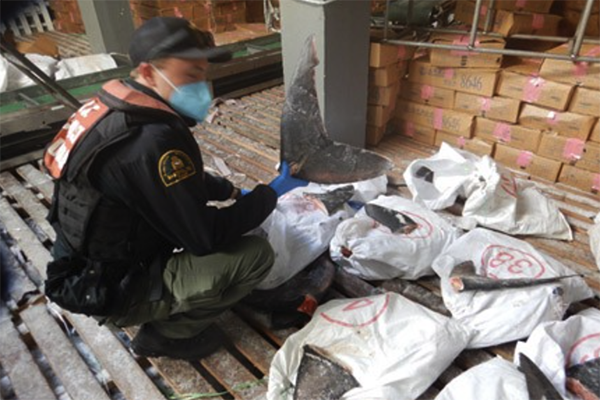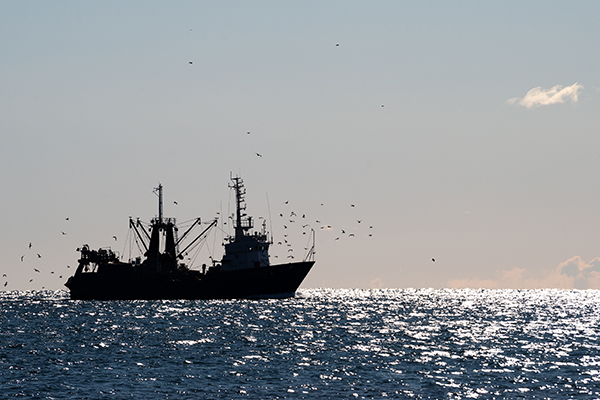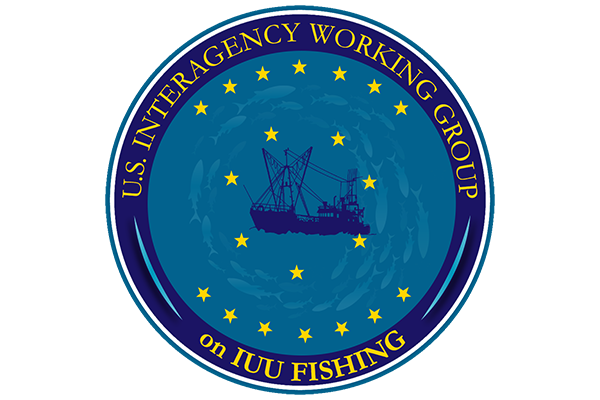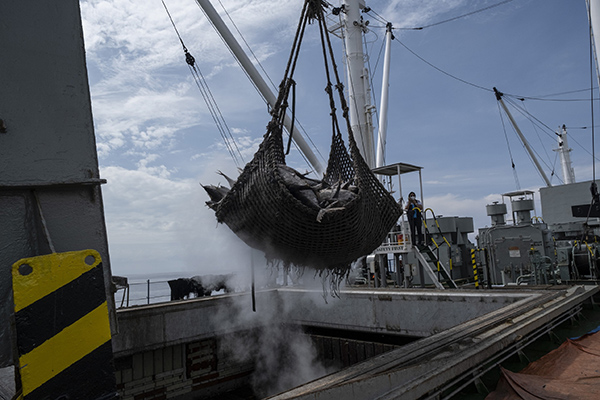International law enforcement operation uncovered ‘concerning incidents’ in North Pacific

Canadian fishery officers have now completed their work in Operation North Pacific Guard, an annual international law enforcement operation on the high seas of the North Pacific. This multilateral operation conducted alongside the United States, South Korea and Japan aims to detect and deter illegal, unreported, and unregulated fishing activity, which is a major cause of declining fish stocks and marine ecosystem destruction worldwide.
“Illegal, unreported and unregulated fishing cheats people living in coastal communities out of hard-earned income,” said the Honourable Joyce Murray Minister of Fisheries, Oceans and the Canadian Coast Guard. “In addition, it causes severe harm to aquatic ecosystems and fish stocks, like wild Pacific salmon. Hard-working, law-abiding harvesters work to protect oceans and ensure sustainable fisheries here in Canada and around the world. We will continue working with our international and non-governmental partners to combat these harmful practices that affect global food security and fish sustainability.”
Fishery officers and aircrew were deployed to Hokkaido, in northern Japan, where they conducted daily patrols over the Northwest Pacific, a region known for its density of high-seas fishing activity. Fishery officers were also deployed to the US Coast Guard Cutter Munro from which they boarded and inspected fishing vessels alongside our international partners.
This year, Canada flew 29 patrols over 247 hours and covered a total of 44,200 nautical miles as part of Operation North Pacific Guard. Canadian officers discovered incidents of sharks being caught and kept and garbage pollution, as well as noted a large number of vessels with improper identification markings. During vessel inspections, fishery officers also reported many cases of harvesters failing to maintain proper catch records – a key element used to calculate sustainable harvest limits.
December 2022 marks the 30th anniversary of the United Nations ban on high seas driftnets. Driftnet fishing is a technique that uses large panels of netting which hang vertically in the water and drift in the currents and the wind to capture fish and other wildlife living in the ocean. High seas driftnets are a threat to Canadian migratory fish stocks such as Pacific salmon, and their use has a devastating impact on all living marine species. The Canadian government said that joint operations such as Operation North Pacific Guard are “critical to monitor and enforce these types of bans, to protect marine ecosystems and migratory fish stocks.”
“Operation North Pacific Guard is part of Canada’s larger role to protect Canadian livelihoods, fish stocks and marine ecosystems, and to better understand potential harms to migratory fish stocks such as Pacific salmon and tuna,” wrote the Department of Fisheries and Oceans Canada (DFO) in a press release. “It serves as an opportunity for international law enforcement partners from Pacific nations to work together to enforce regulations adopted by regional fisheries management organizations (RFMOs) related to fishing on the high seas.”
Follow the Advocate on Twitter @GSA_Advocate
Now that you've reached the end of the article ...
… please consider supporting GSA’s mission to advance responsible seafood practices through education, advocacy and third-party assurances. The Advocate aims to document the evolution of responsible seafood practices and share the expansive knowledge of our vast network of contributors.
By becoming a Global Seafood Alliance member, you’re ensuring that all of the pre-competitive work we do through member benefits, resources and events can continue. Individual membership costs just $50 a year.
Not a GSA member? Join us.
Author
Tagged With
Related Posts

Fisheries
Global analysis of where fishing vessel tracking devices are disabled provides insights into IUU fishing
A new dataset of intentional disabling of identification devices by fishing vessels provides new insights into IUU fishing activities.

Intelligence
‘Through science, there’s no question’: How evidence-based transparency is changing seafood traceability
ORIVO, a science-based testing and certification service for the global feed and supplement industry, aims to change seafood traceability.

Fisheries
U.S. working group announces strategy for combating IUU fishing
The U.S. Interagency Working Group on IUU Fishing, composed of 21 federal agencies, released a wide-reaching national five-year strategy.

Fisheries
Endorsement of transshipment guidelines marks a key move against IUU fishing
To curb IUU fishing, an intergovernmental forum on fisheries and aquaculture has endorsed new voluntary transshipment guidelines.



